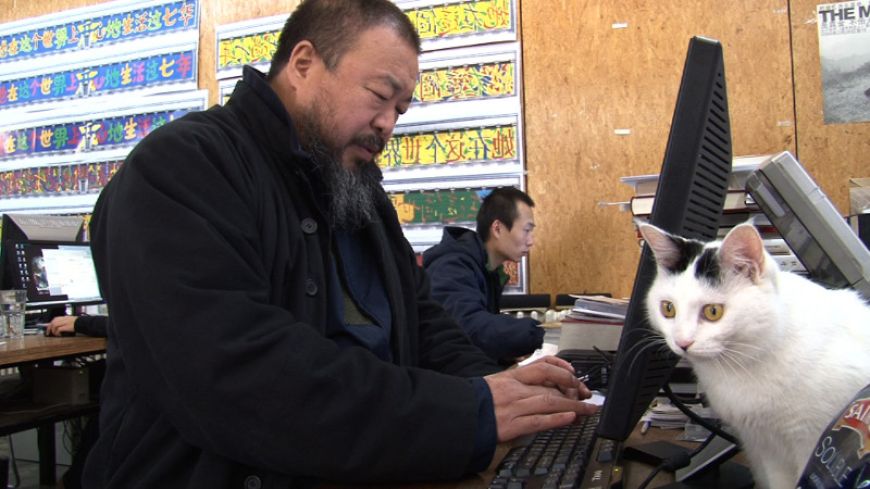
It's easy to forget that many Chinese teenagers know nothing about the Tiananmen Square massacre in 1989. Given China's huge and fast-growing economic and military power, there's ongoing pressure for it to open up, but as documentary Ai Weiwei: Never Sorry reveals, freedom of speech is a long way off.
Activist-artist Ai came to prominence when, having designed the Bird's Nest stadium in Beijing, he denounced the 2008 Olympics as an “empty event”, certainly not for the poor people evicted from the stadium site. The burly artist has been a constant thorn in the side of the PRC, holding up his trademark middle-finger to the government's censorship regime. Propelled by his social media activities and his brash wit, Ai has earned superstar status. “Beijing's Andy Warhol” has held celebrated exhibitions in London and Munich and been feted by the media worldwide.
Director Alison Klayman's intimate portrait charts Ai's recent activity up until his disappearance last year, when he was held in secret detention for 81 days by the police as part of measures to pre-empt a Chinese Spring. The documentary captures Ai very much in his milieu whether touring with his entourage (lots of meals) or working the net in his Beijing studio with his cats around him.
He is a physically large and indomitable presence with a disarming humility and frankness when talking about his life and work. We meet his proud mum who worries to tears, despite Ai's soothing noises, about her boy's brushes with the authorities. His wife talks briefly, and the appearance later in the film of his illegitimate infant son gives rise to some memorable shots of him in the field of porcelain sunflower seeds installation at London's Tate Modern.
Ai's response to the 2008 Sichuan earthquake – an event that initially left him “speechless” - is at the heart of Klayman's film. When the Chinese government refused to acknowledge that thousands of children died when “tofu” constructed schools collapsed on top of them, Ai supporters went from village to village building up a list of 5,835 victims. Ai distributed the list online and he covered the Haus der Kunst in Munich in a huge wall of brightly colour satchels spelling out the words of a mother of a quake victim: “She lived happily for seven years in this world".
The police seem never far away, watching and documenting on camera. Ai's response is document back. When assaulted during a police night raid he creates a firestorm of protest with a photo sent out via Twitter. When he subsequently has emergency surgery for a cerebral haemorrhage he shares a series of photographs of himself from his Munich hospital bed captioned with stoic wit. Later, when the authorities decide to destroy his Shanghai studio on a flimsy pretext, Ai lampoons the injustice by turning the occasion into an open-invitation party serving crab (“crab” being synonymous with “censorship”).
As Ai suggests, he's like a chess player, except the rules of this game keep changing. Given the pressure, Ai's calm resilience is impressive, something the doc traces in part to his boyhood experience of his poet father's humiliations, and his years as a student in New York, as much as his bullish personality.
Klayman's achievement is in providing a detailed depiction of how China suppresses dissent and how one man has become such a potent voice of resistance, as the David and Goliath battle continues to play out across a kaleidoscopic media landscape.

